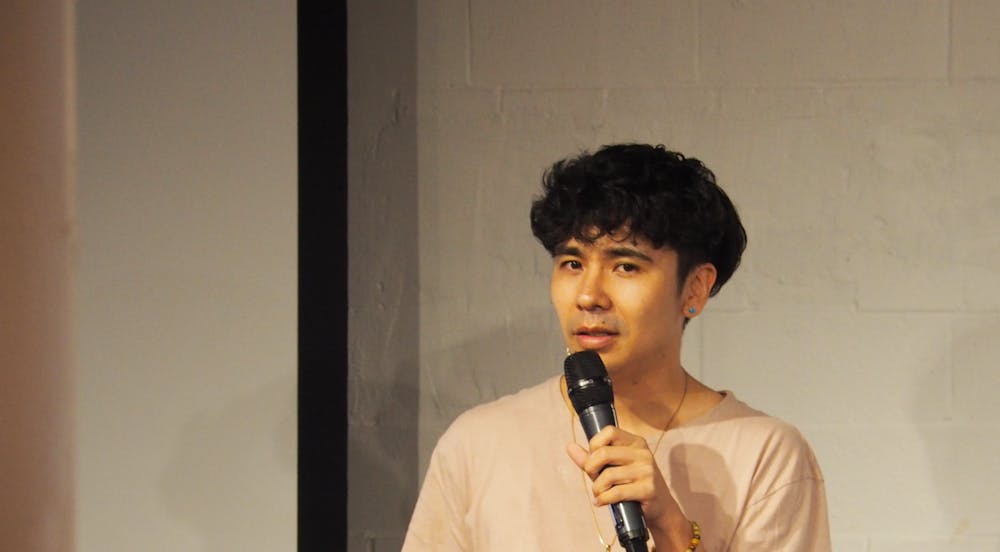What can we do when language fails to bridge our thoughts with each other? As the son of an immigrant mother who was illiterate, this is an ongoing question Vietnamese American writer Ocean Vuong returns to in his poems, essays and novels. His work centers around communication, as if with each poem, he reimagines ways to streamline his emotions.
It is this very exploration of language that makes Vuong’s work raw and genuine. He plays with a pleading voice that is both innocent and curious. These elements, which are tied with themes of family, love and masculinity, capture the dimensions Vuong traverses in his work.
At two years old, Vuong immigrated to the U.S. His father left at a young age, and his mother raised him with wages earned from the local nail salon. Capturing images of their exploration of America, Vuong intimately navigates cultural contact zones in a way that epitomizes the immigrant experience. Unpacking these memories thus leads to an emotionally heavy read.
His mother becomes a recurring subject, notably in his debut novel On Earth We’re Briefly Gorgeous. An extension of his essay called “A Letter to My Mother That She Will Never Read,” Vuong lets us glimpse into what it’s like to live with a family member who faces trauma from war violence. Not only does this novel describe the delicacies behind their mother-son relationship, but it becomes a physical manifestation of him trying to reach her in the form of a letter.
This letter feels private. Upon your first read, it can feel like a moral violation. Vuong writes his novel in the second person with an implication that “you” are his mother, Ma. The urgency and longing in his narratorial voice make it seem like we’re intruding on a conversation we’re not supposed to be a part of. As readers, we’re absorbed in the desires of a son who wants answers and affection. It’s not something you could easily pick up for a casual read.
The complexity behind the novel’s existence is what makes it so beautiful. As readers we connect to how it exemplifies a failed communication between two people. Vuong feels indebted to his mother, and she may not understand the extent to which he is eternally grateful to her.
Shortly after the debut of On Earth We’re Briefly Gorgeous, Vuong’s mother died of cancer. This profound loss led to the creation of his most recent poetry collection, Time is a Mother. Here he questions the passing of time as it relates to his mother’s death. He revisits cross sections of his life while in grief, as an attempt to rediscover the meaning of family, love and loss.
Reading Vuong’s work is eye-opening to how we communicate with each other. It’s largely humanistic and sheds light on how we struggle to reach those that seem unreachable. His poems are thought-provoking and melancholy but beautiful and tangible.
The good news is that it wouldn’t be too difficult to dive into the entirety of Vuong’s published work. He has published four poetry collections and one novel, but their connected themes and content make it easy to follow. Aside from his literary pieces, something to look forward to is Vuong’s in-progress film production of On Earth We’re Briefly Gorgeous. The praise his novel received allowed for the collaboration of its film depiction, with Vuong penning the screenplay.





